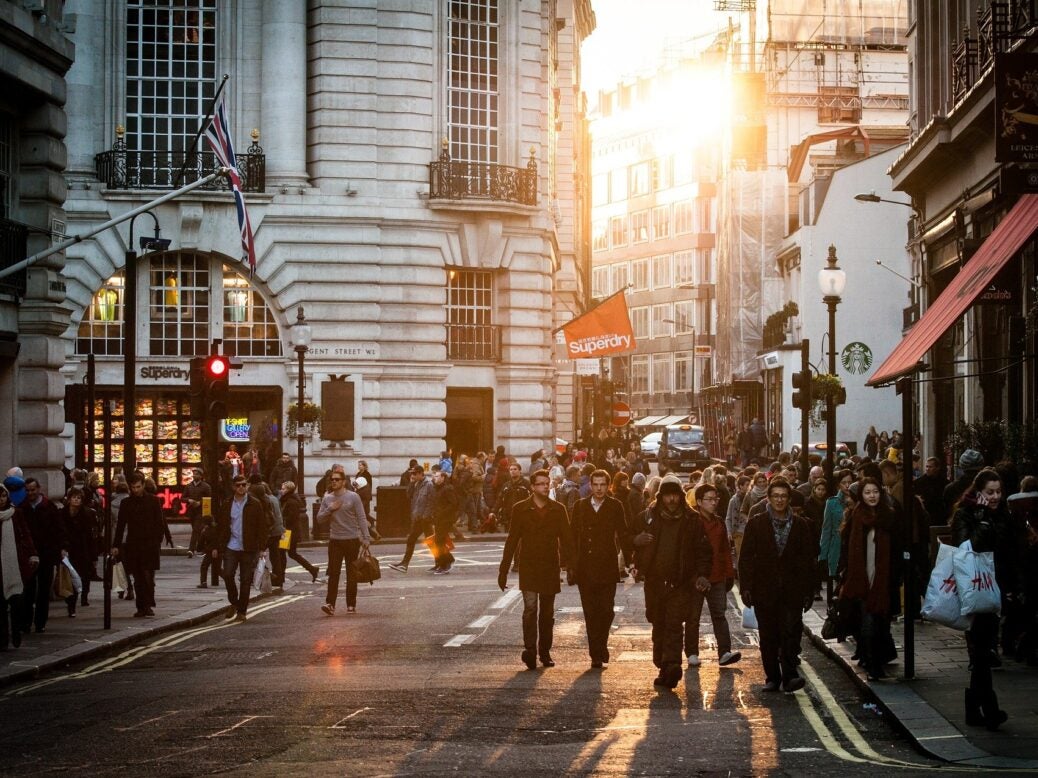
Britain has risen to the challenge of coronavirus – and there could be major political and economic consequences, writes Matthew Goodwin
If all goes to plan then the United Kingdom will remove all lockdown limits on 21 June. Our recovery from coronavirus will soon leave the realm of fantasy and enter reality. And the dynamics of that recovery could yet have a profound impact on our politics.
While Boris Johnson’s government struggled to contain the virus there is no doubting its success at developing and distributing the vaccines. The UK has emerged as a world leader, while the vaccine looks set to become an important new symbol in our national story.
Less than a decade ago, Danny Boyle famously used the Olympics 2012 ceremony to point to the symbols of Britishness. They included our green and pleasant land, the Industrial Revolution, National Health Service, Great Ormond Street hospital, Chariots of Fire, monarchy and James Bond.
Were that ceremony replicated today then it would almost certainly include the Covid-19 vaccine that has drawn on the very best of Britain – our NHS, our key workers, our leading universities and our long history of innovation and dynamism. It could also yet have big political repercussions.
A strong economic and social rebound will put new wind into the sails of Boris Johnson’s premiership, allowing him to claim with a straight face that the state and its institutions passed the first serious test since Brexit.
It has also done so while the European Union has visibly struggled.
The contrast between the two powers could not be sharper. Toward the end of February, the UK had administered 27 people in every one hundred while the EU had jabbed just six. If managed well, this could provide Johnson and his cabinet with a powerful new narrative about what ‘Global Britain’ really is: confident, dynamic, innovative, and a global leader.
In fact, so successful has the roll-out been that the government has announced that every adult will be offered a vaccine by the end of July, which means that within only 17 months of the virus arriving on these islands, we will have developed and administered an effective vaccine to every adult in the country.
This is, put simply, remarkable. Assuming that we are not confronted with new variants, this will go down in history as one of our greatest achievements – a national project that called on all of the talents. In his book, The Decadent Society, American columnist Ross Douthat argued that the West had entered a civilisational malaise that is characterised by a lack of innovation, economic stagnation, cultural exhaustion and lost promise.
While we might have struggled in the early months, this country has blown this thesis apart – coronavirus brought out the best in Britain. This helps to explain what is happening in the polls, where Johnson and the Conservatives have been once again flying high.
At the time of writing, more than one year on from their general election victory, the Conservatives are hovering above the 40 per cent mark and enjoying strong leads among the new groups that are central to their coalition: the working class, people who live away from London and leavers who rallied around Brexit.
Crucially, Johnson also holds commanding leads over his rival Sir Keir Starmer when it comes to the questions of who voters would like to run the economy, handle coronavirus and ‘stand up for British interests’.
Interestingly, when voters are asked who they blame for the crisis they are more likely to say their fellow citizens than the government. This is a useful springboard into the domestic debates that will likely dominate the rest of the year.
A return to the ‘levelling-up’ agenda will be followed by new taxes in November and the COP26 summit, which will see climate change and net zero commitments take centre stage. Many of these voters have also been buoyed by other news, like the UK signing more than 60 rollover trade agreements with countries around the world, additional agreements with countries such as Japan and plans to join the Comprehensive and Progressive Agreement for Trans-Pacific Partnership (CPTPP).
Separate talks are in motion with America, Australia and New Zealand. There are certainly economic challenges ahead but it was interesting to hear Andy Haldane, the Bank of England’s chief economist, recently point to how UK households have saved around £125 billion during the crisis.
If they spend only one quarter of this then he estimates that the UK could easily see annual growth in double-digits and inflation back on target.
‘The economy,’ he wrote, ‘is poised like a coiled spring’. Let’s hope that the unfolding recovery is one to remember.
Matthew Goodwin is professor of politics and associate fellow at Chatham House
More politics:
Matthew Goodwin: Why political change in 2021 might be taxing for some
Matthew Goodwin: Keir Starmer is yet to show he has a ‘knockout punch’
Can the promise of ‘Global Britain’ be realised?






